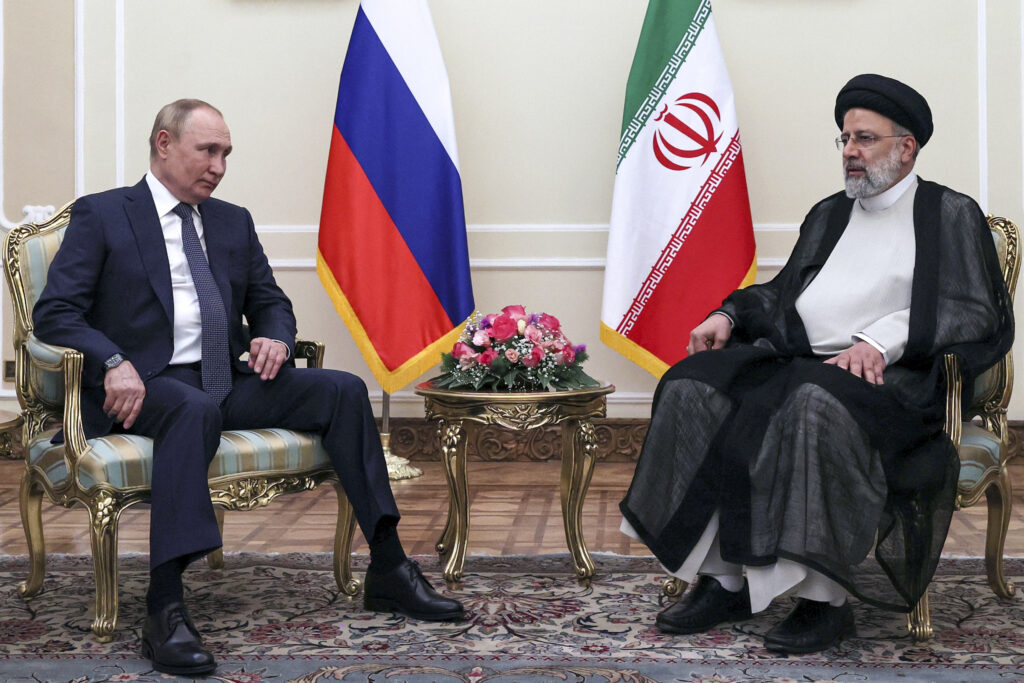seniorspectrumnewspaper – When Israel launched Operation Rising Lion, Russian officials described the Middle East escalation as “alarming” and “dangerous.” Despite the risks, Russian media quickly highlighted potential benefits for Moscow. One advantage is the rise in global oil prices, which could significantly increase Russia’s revenue amid ongoing Western sanctions. Additionally, the conflict diverts international focus away from Russia’s war in Ukraine. Headlines in outlets like Moskovsky Komsomolets even noted that “Kyiv has been forgotten.” Moscow also views its offer to mediate the conflict as an opportunity to position itself as a crucial Middle East powerbroker and peacemaker. This would help improve Russia’s global standing despite widespread criticism over its actions in Ukraine.
Read More : Samsung Galaxy M36 5G Teased in India with Rear Design
Russia Faces Growing Risks from Israel-Iran Conflict
However, the longer Israel’s military campaign continues, the clearer it becomes that Russia risks losing more than it gains. Political analyst Andrei Kortunov warned in Kommersant that the escalation brings serious dangers for Moscow. Russia failed to prevent Israel from launching a significant strike against Iran, a country with which it signed a strategic partnership just months ago. Moscow’s response remains limited to political condemnations of Israel, avoiding any military involvement. The partnership between Russia and Iran, signed by Vladimir Putin and Iranian President Masoud Pezeshkian earlier this year, focuses on coordination for peace and security but does not include mutual defense obligations. This limits Russia’s ability to support Tehran militarily, leaving Moscow vulnerable to setbacks in its regional influence.
Strategic Partnership with Iran Offers Limited Military Support
The Russia-Iran agreement emphasizes closer cooperation in security and defense but stops short of a full military alliance. Russian Foreign Minister Sergei Lavrov highlighted the deal’s aim to strengthen coordination at regional and global levels. Despite this, Moscow is unwilling to provide direct military assistance to Iran amid the current conflict. Russia’s position remains primarily diplomatic, reflecting its careful balancing act in the region. This approach contrasts with Moscow’s earlier losses, such as the ousting of Syrian President Bashar al-Assad last December, which removed another key Middle Eastern ally. The possibility of regime change in Iran and losing Tehran as a strategic partner deeply concerns Russian leadership, especially as its regional influence faces increased challenges.
Middle East Conflict Signals Massive Geopolitical Shifts for Russia
Moscow recognizes that the Middle East is undergoing rapid changes with global consequences. Moskovsky Komsomolets recently commented that these geopolitical shifts will directly or indirectly impact Russia’s future. As Russia grapples with the evolving situation, its leadership is aware that losing influence in the region could weaken its international position. The Iranian-Israeli conflict not only tests Moscow’s diplomatic reach but also strains its strategic partnerships. Russian officials closely monitor the situation, understanding that maintaining ties with Tehran is crucial for regional power balance. Meanwhile, the crisis diverts attention from the ongoing Ukraine war, but it also complicates Russia’s diplomatic calculations.
Putin’s St Petersburg Forum to Showcase Russia’s Global Ambitions Amid Crises
Vladimir Putin will spend much of this week in St Petersburg for the annual International Economic Forum. Once considered “Russia’s Davos,” the forum now faces diminished participation from Western companies due to sanctions and geopolitical tensions. Still, organizers expect attendees from more than 140 countries and territories. Russian authorities plan to use the event to highlight their resilience against Western isolation efforts. Although the forum focuses on economic issues, geopolitics will remain central to discussions. Observers will closely watch Putin’s remarks on the Middle East conflict and the Ukraine war, as Russia attempts to assert its global influence despite mounting challenges at home and abroad.


